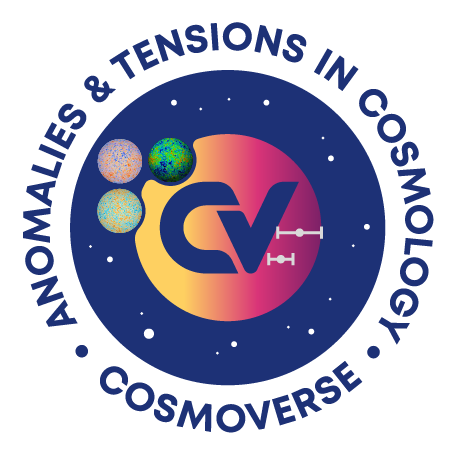What is your name, affiliation, academic position, and job title?
I’m Aleksander Kozak, I’m a Ph.D. student at the University of Wrocław. I’m in my final year, working right now on the Ph.D. thesis.
What is your field of research and/or what project are you involved in?
I’ve always been interested in modified theories of gravity. I started my research by investigating mathematical properties of scalar-tensor theories of gravity in the Palatini approach, and eventually moved on to their applications. Nowadays, I focus on cosmological and astrophysical bounds on extended gravity models, investigating primordial nucleosynthesis, late-time expansion of the Universe, and physics of spherically-symmetric bodies, such as white dwarfs and even (exo)planets.
What are your research plans?
Right now, I am focused on writing the Ph.D. thesis and finding a postdoc position. But after the dust settles, I am planning to work on spherically-symmetric objects in modified gravity and the lithium problem in the context of Big Bang nucleosynthesis and lithium abundance in main sequence stars.
How does CosmoVerse fit within those plans?
Being a part of this project will allow me to effectively collaborate with researchers with similar interests. Moreover, due to an interdisciplinary character of this endeavour, combining theoretical approaches with data analysis, I expect to broaden my horizons and possibly find inspiration for future research.
What are the most exciting open questions in your research area?
I work primarily on applications of modified gravity in astrophysics and cosmology. A well-known problem, related to both fields, that recently also started bothering me, is the lithium-7 problem. The lithium-7 problem is an unresolved problem in modern cosmology concerning the discrepancy between the theoretically predicted and observed lithium abundance in the Universe. In my opinion, it might be indicating a need for a modification of general relativity, so that at early times of the cosmic evolution, its growth has a different dynamics. It might happen that modified gravity will help to reconcile the theory with predictions. Another fascinating issue, seemingly unrelated to the lithium problem, concerns the dark sector of the Universe, i.e. dark matter and dark energy. Our lack of understanding of their true nature fuels my interest in theories alternative to LambdaCDM, which can sometimes offer solutions to problems haunting the standard cosmological model, like the coincidence problem.
What advances or new results are you excited about or looking forward to?
I look forward to the results of the GAIA Astrometry Mission, as well as to the data collected by the James Webb Space Telescope concerning atmospheres of habitable exoplanets, due to my interest in the modifications in their composition introduced by modified gravity. I also hope that, one day, we will be able to probe gravitational waves using interferometers such as LISA.
What is your view on cosmic tensions? How does your work connect with this open question in the community?
I find the tensions, such as the Hubble tension or the lithium-7 problem, an interesting challenge to our current understanding of the Universe. From a methodological point of view, it might happen that such tensions, if they are not a mere result of erroneous measurements, are something that Thomas Kuhn, a philosopher of science, would call an ‘anomaly’. Anomalies are all the deviations from our theoretical predictions which might lead to a ‘paradigm shift’ in the field of cosmology.
My work is purely theoretical, I try to construct alternative models which somehow ease the lithium-7 tension (but maybe in the future I will also work on the H0 tension).
What role do you think a community network like CosmoVerse can play in developing theoretical astroparticle physics and cosmology?
I believe that projects such as CosmoVerse provide a way for scientists specializing in various fields to effectively communicate, so that new solutions to long-standing problems might be found through an exchange of ideas and perspectives. CosmoVerse focuses on issues that are crucial to the development of cosmology, and the joint effort of many experts might create a breakthrough in our understanding of the Universe. Moreover, CosmoVerse enables scientists to start new collaborations across their usual research boundaries, providing an opportunity to learn new things from each other.
What’s your favourite food? Why?
Pierogi, because I’m Polish.
Your favourite scientist and/or science fiction film?
Heisenberg, Gödel.
What non-physics interests do you have and want to share?
I am a passionate chess player. I also enjoy table tennis, that’s the only sport I tolerate.
I’m also studying philosophy, which for me is complementary to my scientific interests.
What do you hope to see accomplished scientifically in the next 50 years?
Finding an effective way to use fusion as our main source of energy.
What question would you have liked us to ask you, and what would you have answered?
Do you think that our current data points toward the necessity to modify Einstein’s general relativity? And my answer would be: I hope so, otherwise my thesis is redundant.

